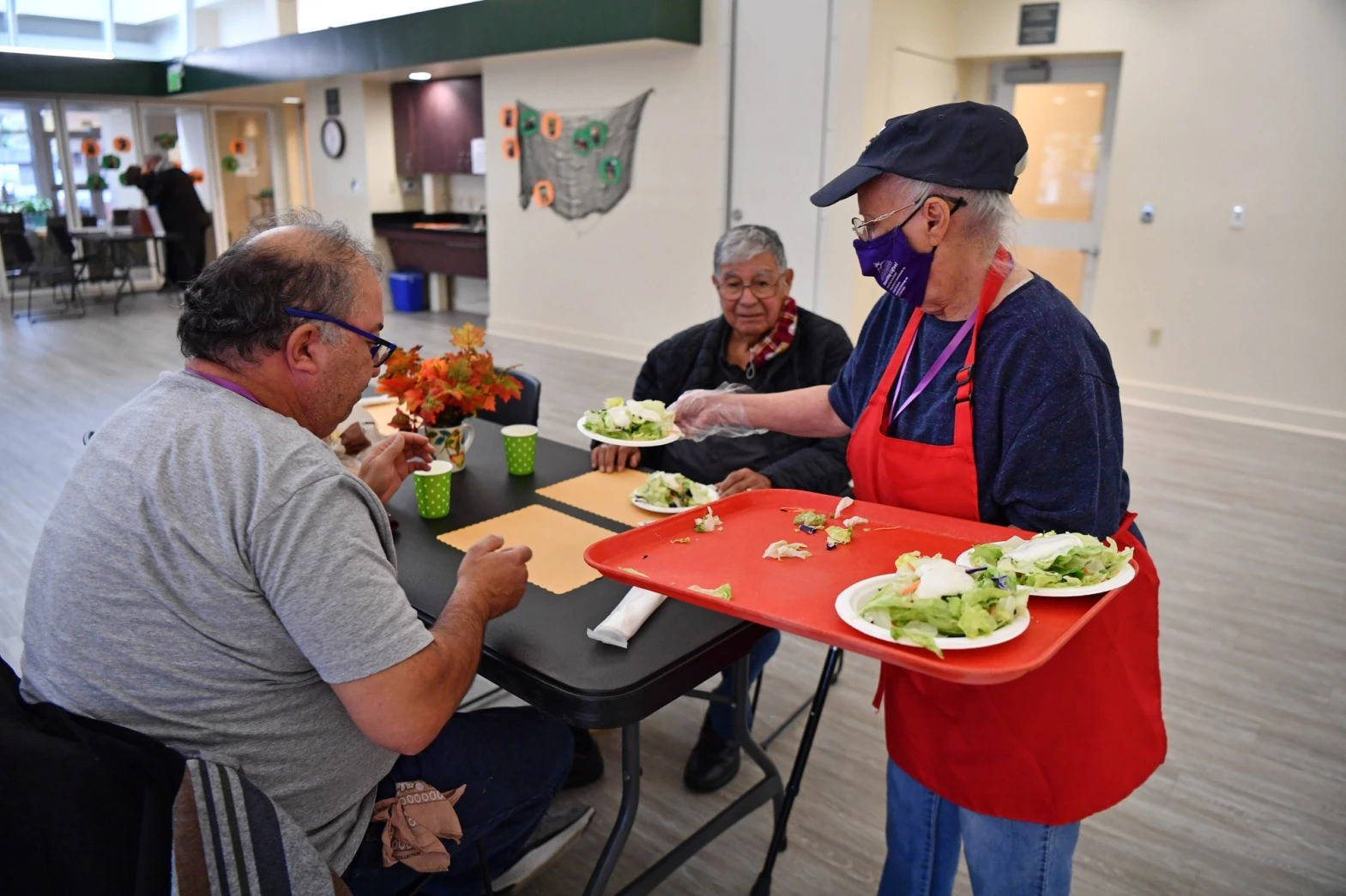At least once a week for the last 14 years, 86-year-old Joe Rubi has been greeted at his Pittsburg home by a friendly visitor bearing gifts such as beef, chicken, pasta, salad and bread.
The Meals on Wheels food is never accompanied by seasoning, since each client has different dietary restrictions, but it does come with a friendly smile, conversation and a check-in. For Rubi, a retired naval shipyard machinist and Korean War veteran who loves to socialize, the visits are just as much about the people he meets as the nourishment.
“The ladies are special. They take time to talk to their clients and see how it’s going. That type of interaction, it strikes home to me,” Rubi said. “God bless ’em.”
The five frozen meals Rubi receives every week are among the half a million served annually by the Meals on Wheels Diablo Region, a Walnut Creek-based organization that provides roughly 6,700 seniors per year with not just food but also services ranging from exercise programs to social interaction and fall prevention, for which volunteers will install grab bars and railings to help their clients live independently for a little longer.
“We match volunteers with seniors who may not have anyone else in their lives,” said Executive Director Caitlin Sly. “We try to have a whole host of different programs and services that we offer to address many of the health needs our seniors have.”
The organization received funding this year from Share the Spirit, an annual holiday campaign that serves residents in need in the East Bay. Donations help support 56 nonprofit agencies in Contra Costa and Alameda counties. Meals on Wheels Diablo Region will use its grant to provide a year of Internet service for 50 low-income seniors to allow them to use Meals on Wheels tablets to participate in Zoom health and wellness classes and connect with friends and family. The funds will also help pay for medical alert devices for 25 frail seniors in case of falls or other emergencies.
In order to qualify for Meals on Wheels services, clients must be older than 60, homebound, no longer driving, unable to prepare food themselves and without a qualified caregiver who prepares meals. About 80% of Meals on Wheels clients are classified as “low-income or extremely-low-income,” according to an internal study by the organization.
While its name and reputation draw focus to the food delivery program, Meals on Wheels is just as committed to providing companionship and socialization. More mobile seniors, for instance, can attend café-style luncheons Monday through Wednesday, at the Pittsburg Senior Center at 300 Presidio Lane, which provided meals five days a week before the COVID-19 pandemic hit.
“I see people sitting together who never knew each other before and enjoying each other’s company,” Bonnie Paulson, the café program specialist for Meals on Wheels Diablo Region, said in an interview.
Similarly, during deliveries, volunteers make a point of talking to each recipient, and they use a smartphone app to note points of importance to other drivers, such as if a client says he or she hasn’t been feeling well.
“We are not DoorDash. We are definitely there to check in and make sure our seniors are healthy and well,” Sly said.
Walnut Creek resident Jeanette Stewart, 81, no longer uses the meals delivery service but said that when she did one of the drivers took it upon herself to visit Stewart for a week straight to read her an entire book. It was about Thomas J. Hicks, a notorious black market baby seller — not the most uplifting topic, but the social interaction brightened Stewart’s day. Now, in a post COVID-19 world, Stewart participates in Meals on Wheels’ Friendly Visitor program, for which she and a volunteer converse on the phone multiple times per week.
“We talk about all kinds of things. I tell her stories, and we talk about other stuff. It’s wonderful for both of us,” Stewart said. “If you can get to know someone over the phone you can really learn to love them.”
Given that seniors are among those most vulnerable to COVID-19, the pandemic has forced other changes to Meals on Wheels, including temporarily shuttering the cafe, increasing the number of meals delivered at a time to reduce interactions and moving the exercise program online and outdoors. Now, however, things are gradually returning to normal, Sly said.
“This pandemic has raised awareness for so many people about the plight seniors face and how we too often forget that we are all going to be a part of this segment of the population one day,” she said. “I hope as the pandemic wanes that we don’t forget about that and we continue to invest in our seniors. We definitely owe them the world.”
